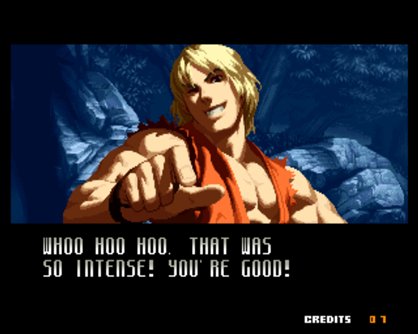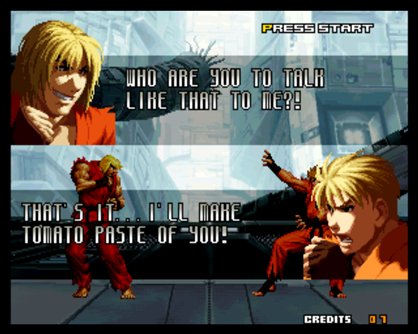Street Fighter Week: The evolution of Ken and Ryu
Two of gaming's most iconic fighters are dissected, game by game
Table of Contents
Street Fighter|Street Fighter II|Alpha series|Street Fighter III|EX series|SF: The Movie and Gem Fighter|Marvel vs. Capcom series|SNK vs. Capcom series|Misc. games|Sprite comparison|SSFIITHDR and Street Fighter IV|Comics, films, and more
SNK vs. Capcom: The Match of the Millennium - 1999
Match of the Millennium is a quant Neo Geo Pocket Color game, and the first game to mash up SNK and Capcom characters. Don't let the simple art fool you, this is one of the most feature rich and popular handheld fighting games ever made.
The characters look a bit similar to the Karate Champ inspiration we mentioned in reference to the original Street Fighter.
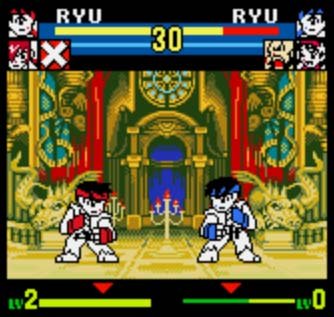
Capcom vs. SNK 2: Mark of the Millennium 2001 - 2001
While the sprites in Capcom vs. SNK: Millennium Fight 2000 are ripped from Alpha, Capcom redrew Ken and Ryu for Capcom vs. SNK 2, and the resulting appearance is something like a combination of Alpha, SF II, and SF III. They are slightly thinner than their Alpha and SF III counterparts, and have slightly more twisted torsos in their ready stances. There's also a bit more muscle definition, and Ryu's hair is back to brown.
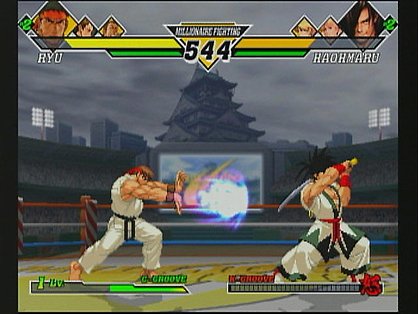
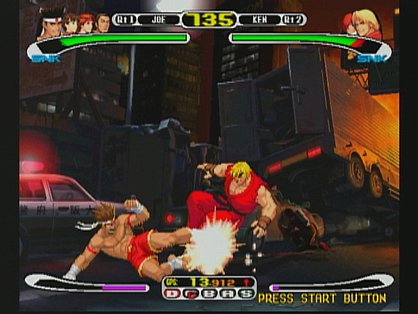
Trivia: Mark of the Millennium 2001 is known as "Millionaire Fighting 2001" in Japan. Why? Hell if we know.
Sign up to the GamesRadar+ Newsletter
Weekly digests, tales from the communities you love, and more
SVC Chaos: SNK vs. Capcom - 2003
SVC Chaos was not received particularly well by the media, but what interests us is that it was developed by SNK instead of Capcom, meaning Ryu and Ken take on a never-before-seen style. The characters are darker, leaner, and haven't ironed their uniforms in some time.
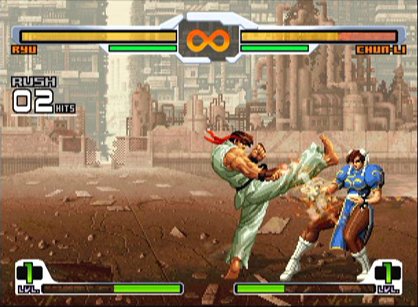
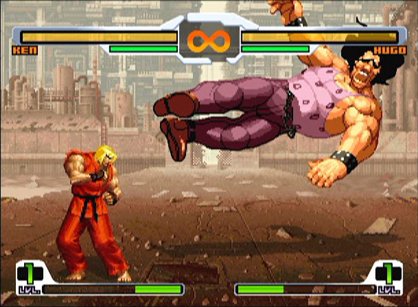
SVC Chaos is also known for its strange dialogue, possibly as the result of poor translation.
